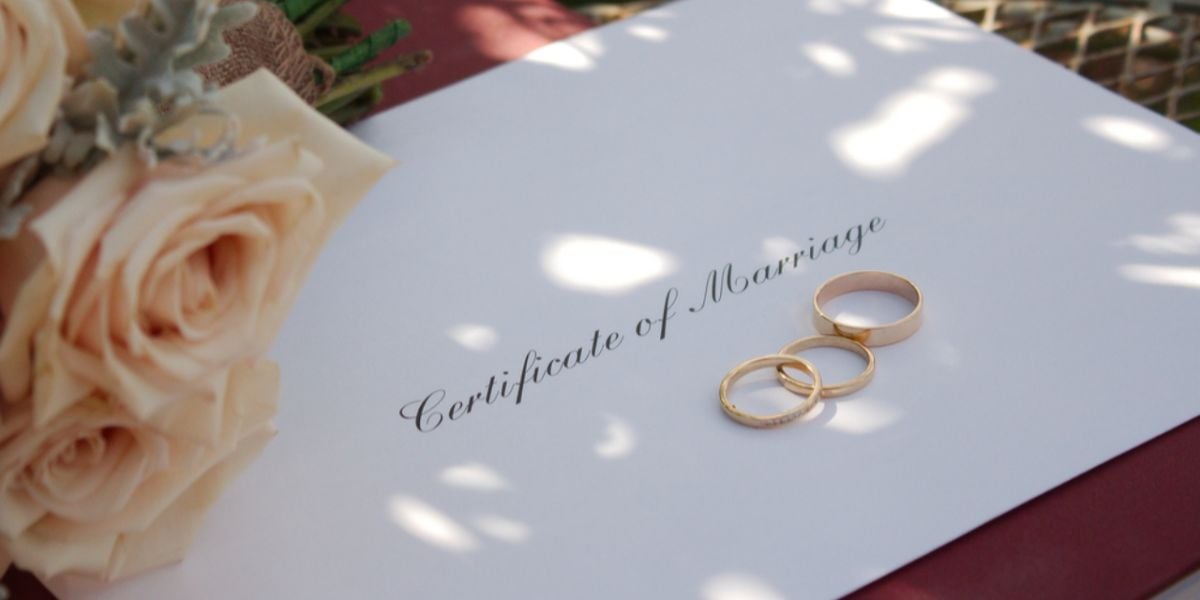
Italy is the romantic country par excellence, when you think of Venice, Rome or Florence. And the idea of getting married there is cherished by many expats, whether both spouses are of foreign origin or not. If you plan on having a civil or a religious wedding in Italy, you will need to be aware of the formalities, as the country is as administrative as it is traditional.

Who is eligible for marriage in Italy?
To be eligible for marriage in Italy, you need to have reached the age of majority and have previously obtained the document called "Nulla Osta" (article 116 of the Italian Civil Code), a sort of authorization from your home country's consulate. A sworn Italian translation of this document is also required. For nationals of countries that have ratified the Monaco Agreement of 5 September 1980, a certificate of capacity to marry is also needed. These countries are Austria, Germany, Italy, Greece, Switzerland, the Netherlands, Luxembourg, Spain, Turkey, Portugal and Moldova.
If both spouses wishing to marry in Italy are expatriates, they must apply together to their respective consulate (or consulates) to obtain the Nulla Osta or the certificate of capacity to marry.
If only one of the spouses is an expatriate, the procedure remains the same, the expatriate will have to go to his/her embassy in order to obtain the required documentation according to his/her nationality. The procedures will be simpler in this case, as one of you is an Italian citizen.
What is the procedure for getting married in Italy?
To get married in Italy, whether or not both spouses are of foreign origin, they must first contact the Italian registrar to request the publication of banns. This procedure must be carried out at least 3 to 4 months before the date of the desired union if at least one of the spouses resides outside Italy, and 1 to 2 months if the couple resides in Italy, regardless of the type of marriage.
Once the banns have been published, from the third day, you have a maximum of 180 days to celebrate your marriage at the relevant town hall.
Before starting the procedure at an Italian town hall, it is essential to wait for the Nulla Osta or certificate of marriage capacity to be sent by the consulate. Please note that the Nulla Osta is valid for 6 months. After this period, you will have to start the procedure again with your consular district.
In order to issue the Nulla Osta, the consulate or embassy will ask you to prepare a file containing the following documents:
- a copy of your identity card or passport;
- proof of address/residence in Italy;
- a copy of the birth certificate of the person concerned dated less than 3 months ago;
- for widows, a copy of the death certificate of the previous spouse;
- a completed questionnaire that indicates the applicant's current family and professional situation (it is provided by the consulate).
Following this, future spouses must go to the civil status office of the town hall of their place of residence with the file compiled and present the following documents:
- identity document and tax code of both spouses;
- authorization(s) from the consulate(s) (the Nulla Osta or other certificate)
- a fiscal stamp of 16€ (marca da bollo)
This phase is called in Italian "Promessa di matrimonio" (promise of marriage) and seals the couple's willingness to get married. The waiting time may be a few weeks so that appropriate verifications can be made. Then, you can officially announce the wedding venue and choose the wedding celebrant.
Good to know:
The wedding will be officiated in Italian, but the spouses may request that an official interpreter also be present.
Following the marriage, both spouses will have to register their marriage certificate with their embassy or consulate so that it can be recognized by the civil status of their home country. They will then receive a family record book once their civil status has been updated.
Religious marriage in Italy
Religious marriages in Italy are in apparent decline compared to civil marriages. In fact, according to Istat figures for 2020, they account for only one-third (28.9%) of unions celebrated in Italy. Moreover, significant differences have been observed between the north and the south of the country, which is more attached to traditions and religion.
There are two types of religious marriage in Italy, canonical and concordat. Concordat marriage is reserved for Italian citizens and allows for the combination of religious and civil rites thanks to the concordat established between the State and the Church. This means that the Italian State recognizes the civil effects of a religious marriage, provided that the act is transcribed in the civil registers.
Canonical marriage, on the other hand, has only a religious value. If your idea is to get married in a church as an expatriate, you will have to get married before a civil registrar in the commune of your choice.
In addition to the formalities and documents required for a civil union, you will also need to contact the priest of the parish where you wish to get married and provide a range of documents. For example, you might be asked to provide the following documents:
- the spouses' birth certificates;
- a baptism and/or confirmation certificate;
- the civil marriage certificate;
- a list of witnesses (one or two per spouse);
- a certificate that you have never been married and therefore divorced.
Be sure to start these steps with the parish at least one year before the date of the wedding because the church requires a period of preparation for the wedding, consisting of interviews, meetings, reflections on life as a couple and the change that marriage represents in terms of commitment, etc.
What are the costs of getting married in Italy?
For a civil marriage at the town hall, you will have to pay one tax stamp (16€), two stamps if one of the spouses resides in another commune, or three stamps if the marriage takes place in a commune other than the one where the banns are published. In addition, depending on the town hall where you are celebrating your union, the type of hall and the day of the week, the prices vary considerably. For example, in Rome, getting married in the Segretariato Generale hall is free of charge. However, if you wish to rent one of the capitoline halls for your wedding ceremony, it will cost you €150 if you are a resident and at least €1,200 if you are a non-resident (plus weekend fees). Add to this the cost of the reception, dress(es), caterer, decoration, music and any extras such as candy boxes.
Whether it is a religious or civil celebration, Italy is the European country where people spend the most, with a national average of €25,000 per wedding, which is higher in the south, reaching €30,000.
Good to know:
As an expatriate in Italy, you may need to organize a 'staged' wedding, i.e., a second or third wedding in your home country, for example, if some of your friends or family members cannot travel.
In Italy, it is common to have wedding planners organize your wedding. If you choose this option, in addition to the purely supplier-related costs, you should also take into account the services of an agency that sometimes puts a whole team at the disposal of the future bride and groom to assist them in their efforts.
Where and when to get married in Italy?
There are many options for getting married in Italy, whether in terms of the type of ceremony or the wedding venue. Whether spouses opt for a religious or civil union, they will not be disappointed. Italy is a traditional country that loves all types of romantic celebrations, especially weddings, and the whole country, from north to south, has an infinite number of venues and halls to host these ceremonies. From town halls, churches and chapels to gardens, natural settings and bucolic landscapes, farmhouses, castles and other estates, the choice is wide and adapted to all tastes. Italian cuisine, for its part, is a real delight.
Weddings can be celebrated in neutral locations of your choice, with celebrants (mayor, priest, or pastor) coming to the venue so that the wedding and reception take place in the same place.
If you're looking to get married between May and September, you will need to make arrangements in advance at any venue, as demand is high and Italians generally prefer to get married in the summer months. If you want a simple wedding at the town hall, 2-3 months are enough. If you want to get married in a church, make sure you find out at least a year in advance.
Good to know:
Some municipalities open the doors of their historical monuments for wedding ceremonies, as is the case in Rome. Check with your local prefecture or the prefecture of the place where you want to get married.
Wedding traditions in Italy
Some countries have common wedding traditions, such as the white dress, the sugared almonds and the bouquet toss. But Italy has other peculiarities that make it unique in this respect. Here are some of the habits and customs that Italians respect, whether it is a civil or religious wedding:
- Mars and Venus are the enemies of weddings. In Italy, the choice of the date and day of the wedding is very important. Although Saturday and Sunday are the preferred days for Italians to get married, it is common to see ceremonies taking place in the middle of the week as well. But there is a saying that one should avoid getting married on a Tuesday or Friday.
- Orange blossoms are the symbol of marriage in Italy, a tradition that comes straight from Sicily. The round, juicy fruit is a symbol of fertility and happiness. It is common to see brides wearing orange blossoms in their hair or in their bouquets.
- Still widespread in the south of the country, serenading is a particularly romantic tradition. On the wedding eve, the groom, accompanied by musicians, goes to his fiancée's home, under the window of her maid's room, to sing his love to her. It's an opportunity to celebrate the wedding with friends and the neighborhood.
- As a good omen, in southern Italy, it is also customary for the mother-in-law to consign the bouquet to the bride on the wedding day. In addition, she must throw flower petals and break a plate at her feet.
- The bride always arrives late to the ceremony. It is a tradition for the bride to wait until the guests and the groom to settle in quietly so that all eyes are on her when she arrives.
- It is customary to honk, clap or make noise at the end of the ceremony. This ancient tradition was used to chase away evil spirits, but today it is a staple at weddings in Italy to express joy.
Useful link:
We do our best to provide accurate and up to date information. However, if you have noticed any inaccuracies in this article, please let us know in the comments section below.








